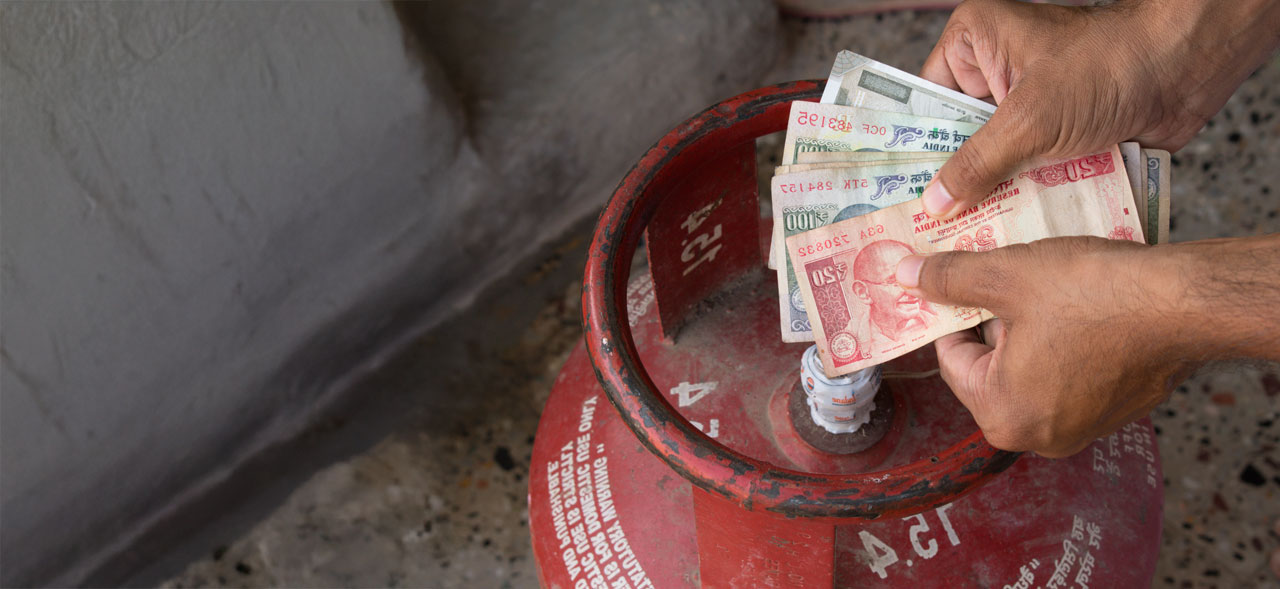
The Government of Odisha introduced the Mukhyamantri Karma Tatpara Abhiyan (MUKTA) program as a response to the COVID-19 pandemic to provide urban wage employment through small-scale infrastructure projects. While the program addressed immediate livelihood needs, it encountered operational issues such as prolonged wage payment delays and weak project management systems, which affected timely execution and beneficiary satisfaction.
MSC worked with the government to design and implement a smart payment and project management solution called “MUKTASoft.” The solution was piloted across 23 urban local bodies to test its effectiveness. MUKTASoft digitized administrative processes, streamlined project workflows, and introduced automation in fund release and contract tracking. MSC ensured the system was aligned with government operations while providing real-time insights into fund utilization, project progress, and payment status.
The introduction of MUKTASoft reduced wage payment delays from 120 days to under 30 days, with a long-term target of achieving disbursal within seven days. The solution also eliminated idle float by enabling Just-in-Time fund transfers and improved financial control across urban local bodies. Enhanced visibility and digital records strengthened contract management and accountability. The success of the pilot highlighted how digital tools can improve efficiency, transparency, and impact in public financial management.
The Gates Foundation commissioned the project.

The Government of India procures food grains through both centralized and decentralized models to ensure price support for farmers and maintain food security. Payments for these procurements are made to the Food Corporation of India (FCI), as the nodal agency for central procurement and state agencies. However, the current system of account submission for food grain procurement, reconciliation, and settlement is complex and inefficient, often leading to payment delays. These delays hinder fund flow predictability and affect operational efficiency across procurement agencies.
MSC was engaged by the Department of Food and Public Distribution to assess the existing settlement and reconciliation processes and identify structural and procedural bottlenecks. We proposed a re-engineered, rule-based, and real-time system to streamline claims settlement and enable Just-in-Time (JIT) fund releases for food subsidy payments. We redesigned the process with clear turnaround times, responsibilities, and escalation protocols, consolidated into a standard operating procedure (SOP). We supported in digitizing the system by integrating newly designed modules into SCAN 2.0 using a functional requirement specification (FRS) and introduced a revised method for determining Procurement Incidentals (PIs), specifically, transportation, handling, and mandi labor charges, through time and motion studies and empirical data analysis.
The proposed reforms are expected to significantly reduce delays in claims settlement, increase transparency in procurement-related payments, and improve fiscal management.
The Gates Foundation commissioned the project.

The Government of Odisha has one of India’s most developed treasury systems. However, challenges such as manual bill processing, idle fund accumulation, and poor fund utilization continued to affect the efficiency of public expenditure. These inefficiencies result in delayed payments and higher borrowing costs.
MSC partnered with the Odisha Finance Department to address these issues through the design and implementation of a Just-in-Time funding mechanism. The solution was built around the virtual treasury single account (VTSA) model, which enabled real-time, need-based fund transfers directly from the state treasury to beneficiaries’ bank accounts. This removed the need for advance fund allocations to implementing agencies, minimized float funds, and introduced a seamless, digital workflow. By automating the process, MSC helped eliminate manual interventions and established an efficient system of fund disbursement.
The VTSA-based Just-in-Time funding solution significantly improved the utilization and transparency of government funds. Departments gained greater visibility over their fund positions, which enabled better planning and budgeting. The initiative also reduced idle fund parking and helped the government optimize its borrowing by freeing up locked resources. Overall, the intervention has led to faster and more efficient delivery of payments and improved fiscal discipline across departments.
The Gates Foundation commissioned the project.
The Department of Food and Public Distribution (DFPD) under the Ministry of Consumer Affairs, Food, and Public Distribution has been working to strengthen the Public Distribution System (PDS) through digital reforms, efficiency improvements, and nutrition-focused initiatives. Since 2014, MSC has provided technical assistance to support these goals. The support included modernizing the PDS architecture, piloting direct benefit transfers, and aligning food distribution with broader nutritional security objectives.
MSC supported end-to-end computerization pilots in Andhra Pradesh, Bihar, and Jharkhand by digitizing the beneficiary database and supply chain, and automating fair price shops (FPSs). These efforts helped the government identify and remove 50 million fake or duplicate ration cards. We also supported pilots for transitioning PDS benefits from in-kind to cash in Chandigarh, Puducherry, Dadra and Nagar Haveli, Jharkhand, and Karnataka. It intends to improve efficiency and enable better dietary outcomes. MSC contributed to the design and evaluation of the One Nation One Ration Card (ONORC) scheme to ensure portability of food grain entitlements, especially for migrant workers. During the pandemic, we supported the design, implementation, and monitoring of the PMGKAY relief program. In 2020, MSC helped establish a Technical Support Unit (TSU) at DFPD to shift focus toward nutritional security and food system transformation.
MSC’s support has contributed to system-wide improvements that saved the government approximately USD 22 billion by March 2023 through the identification and removal of 50 million fake or duplicate beneficiaries. The interventions also laid the groundwork for a shift from food security to nutrition security. Current work supports rice fortification, FPS transformation for financial viability, millet integration into PDS, and the repositioning of FPSs as local nutrition hubs.
The Gates Foundation commissioned the project.

The Government of India, through the Ministry of Petroleum and Natural Gas (MoPNG), intended to enhance the efficiency and impact of its major cooking gas subsidy programs—Direct Benefit Transfer of LPG (DBTL) and the Pradhan Mantri Ujjwala Yojana (PMUY). These programs targeted the direct delivery of subsidies to eligible households while promoting clean energy adoption among low-income families. However, to maximize benefits, the programs needed improvements in design, communication, enrollment processes, and overall governance. MSC supported the government by providing technical assistance through quick, evidence-based evaluations.
For the DBTL scheme, we conducted several assessments to improve how the program works, make the scheme portal more user-friendly, and strengthen communication, especially for the successful “Give-it-Up” campaign, which led 11 million households to give up their subsidies voluntarily.
For the PMUY scheme, we carried out impact studies in Uttar Pradesh, Madhya Pradesh, and Chhattisgarh to understand its effects on household health, economic conditions, and women’s empowerment. We also helped improve communication materials about who is eligible, how to enroll, and how to use LPG safely, which were later used in national audiovisual campaigns.
Our inputs helped the government eliminate 40 million duplicate or ghost beneficiaries, leading to savings of USD 8.8 billion by 2023. The improved communication strategies further ensured greater citizen awareness and safer use of LPG connections among vulnerable populations.
The Gates Foundation commissioned the project.

India has made significant progress in digitizing its social protection programs to reduce leakages, improve governance, and ensure direct delivery of benefits to citizens. These programs span multiple sectors, which include food, fuel, fertilizer, health, rural livelihoods, social assistance, social insurance, and education. Despite its progress, many schemes required further reforms to improve efficiency, ensure last-mile delivery, and shift from in-kind to cash-based transfers where appropriate.
MSC collaborated with central and state governments, as well as key partners, to assess and enhance the performance of these programs. We conducted Direct Benefit Transfer (DBT) readiness assessments to evaluate infrastructure and institutional preparedness across different regions. Our teams also offered real-time, independent monitoring and evaluation support during pilot implementations. This included detailed ground-level tracking of rollout processes, digital payments infrastructure, and beneficiary onboarding to ensure data-driven course corrections during implementation. MSC’s ongoing support enabled governments to fine-tune program delivery, strengthen accountability, and improve beneficiary experiences. Our work contributed to more efficient, transparent, and scalable G2P delivery mechanisms across India. Overall, these initiatives have directly impacted more than 875 million people, helping make social protection systems more inclusive and responsive.
The Bill & Melinda Gates Foundation commissioned the project to MSC.




